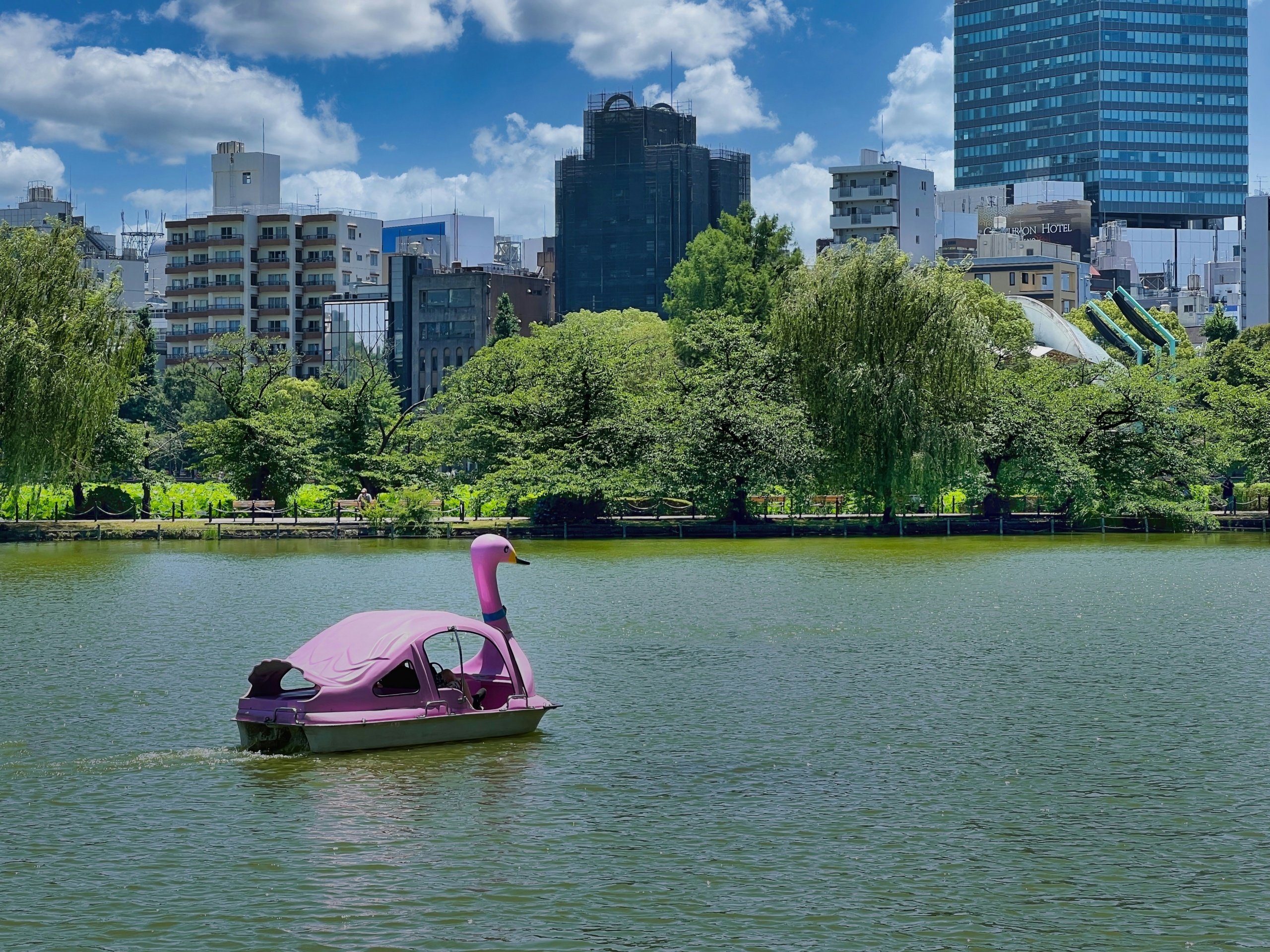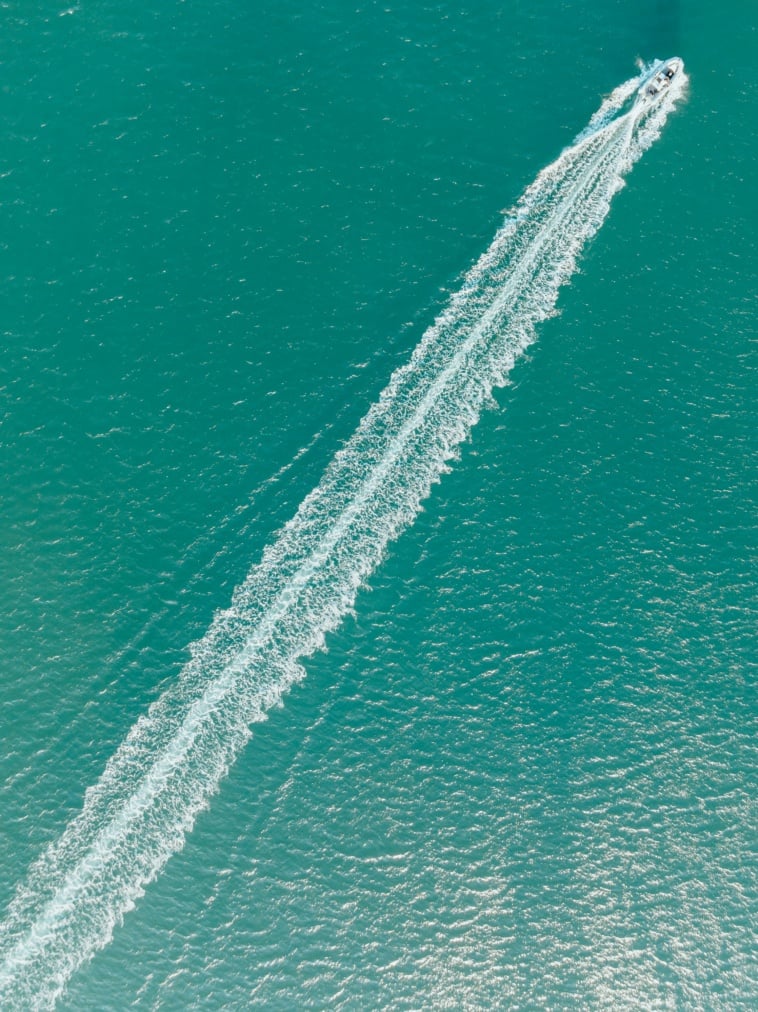Imagine yourself cruising along the sparkling waters, with the wind in your hair and the sun warming your skin, aboard a rented pontoon boat. The sense of freedom and adventure is undeniable, but just how far can you push the boundaries? Can you embark on a thrilling journey to uncharted territories or are there restrictions that dampen your excitement? In this article, we will unravel the mysteries surrounding the limitations of pontoon boat rentals, ensuring that your getaway on the serene waterways is nothing short of extraordinary.
Navigational Restrictions
Understanding the Navigation Limits
When renting a pontoon boat, it is essential to have a clear understanding of the navigational limits associated with the rental. These limits are in place to ensure the safety of both the boat and its occupants. Navigational limits refer to the specific boundaries or areas that you are allowed to navigate within during your rental period.
Legal Restrictions on Pontoon Boat Rentals
In addition to understanding the navigational limits set by the rental company, it is crucial to be aware of any legal restrictions that may apply to pontoon boat rentals. These restrictions can vary depending on the location and may include speed limits, age restrictions for operators or passengers, and specific guidelines regarding alcohol consumption while operating the boat.
Navigational Boundaries on Different Water Bodies
Navigational restrictions can also differ depending on the type of water body you plan to navigate. For example, while some restrictions may allow you to operate a pontoon boat on rivers and inland lakes, there may be different limitations when it comes to coastal waters or open seas. It is essential to familiarize yourself with these boundaries before embarking on your pontoon boat rental.
Importance of Knowing Navigational Restrictions
Knowing and respecting navigational restrictions is crucial for both safety and legal compliance. By adhering to these limitations, you can prevent accidents and ensure a positive boating experience. Additionally, following navigational restrictions helps preserve the natural environment and protect sensitive ecosystems in protected areas. Being knowledgeable about navigational restrictions demonstrates responsible boating behavior and promotes a safe and enjoyable experience for everyone involved.
Rental Agreement Terms
Reviewing the Rental Agreement
Before embarking on your pontoon boat adventure, it is essential to carefully review the rental agreement provided by the boat rental company. The rental agreement outlines the terms and conditions that you must adhere to during the rental period. By understanding these terms, you can ensure a smooth and stress-free rental experience.
Exploring Limitations and Prohibited Areas
The rental agreement may highlight specific limitations or prohibited areas that you must avoid while operating the pontoon boat. These areas may include shallow or rocky waters, areas with strong currents or tides, or zones designated for wildlife protection. Familiarize yourself with these restrictions to prevent damage to the boat and avoid potential legal consequences.
Understanding Distance Restrictions
The rental agreement may also specify distance restrictions that you must not exceed during your rental period. These restrictions are often in place to ensure the safety of both the boat and its occupants. By understanding and respecting these distance restrictions, you can prevent accidents and mitigate the risk of running into navigational hazards.
Clarifying Terms and Conditions
The terms and conditions outlined in the rental agreement are designed to protect both the boat rental company and the renter. It is essential to clarify any ambiguities or seek clarification from the company if there are aspects of the agreement that you do not fully understand. By clarifying any uncertainties, you can ensure that you are in compliance with the rental agreement and avoid any potential misunderstandings or disputes.

Safety Precautions
Assessing Your Boating Experience
Before embarking on a pontoon boat rental, it is important to assess your own boating experience and skills. Pontoon boats are generally considered safe and relatively easy to operate, making them suitable for boaters of varying experience levels. However, if you have limited experience or are unfamiliar with operating a pontoon boat, it is recommended to seek additional training or assistance to ensure a safe and enjoyable experience.
Importance of Safety Briefings
Regardless of your boating experience, it is crucial to receive a thorough safety briefing from the rental company before setting off on your pontoon boat adventure. The safety briefing should cover important topics such as boat operation, emergency procedures, and the location of safety equipment on board. Pay close attention during the safety briefing and ask any questions you may have to ensure you are fully prepared for a safe boating experience.
Adhering to the Boat’s Capacity
Each pontoon boat has a specific capacity, which refers to the maximum number of occupants the boat can safely accommodate. It is essential to adhere to this capacity limit and avoid overloading the boat. Overloading a pontoon boat can affect its stability and maneuverability, increasing the risk of accidents or capsizing. Prioritize safety by ensuring that the number of passengers and the weight on board are within the boat’s specified capacity.
Maintaining Proper Safety Equipment
To ensure your safety while on a pontoon boat rental, it is crucial to have the necessary safety equipment on board. This includes life jackets for all occupants, throwable flotation devices, a fire extinguisher, and signaling devices such as a whistle or horn. Make sure the safety equipment is in good condition and easily accessible in case of an emergency. Regularly check and maintain the safety equipment throughout your rental period.
Navigational Considerations
Checking Local Weather Conditions
Before setting out on your pontoon boat rental, always check the local weather conditions. Inclement weather can pose significant risks to boaters, including strong winds, heavy rain, or thunderstorms. Pay attention to weather forecasts and avoid boating in adverse conditions. If the weather deteriorates while you are already on the water, seek shelter and wait for conditions to improve before continuing your journey.
Understanding Waterway Traffic
Depending on the location and time of year, waterways can be busy with various types of vessels. It is important to be aware of waterway traffic and exercise caution when navigating in areas with high boat traffic. Stay vigilant and adhere to the rules of the waterway, such as yielding right of way and maintaining a safe speed. By understanding and respecting waterway traffic, you can avoid collisions and ensure a safe boating experience.
Awareness of Restricted Areas
Certain water bodies may have restricted areas where boating activities are not permitted. These areas may include wildlife preserves, sanctuaries, or zones designated for specific activities such as swimming or fishing. It is crucial to be aware of these restricted areas and avoid entering them to protect the natural environment and prevent disruptions to wildlife. Familiarize yourself with local maps or signage indicating restricted areas to ensure compliance.
Identifying Suitable Anchor Points
When planning your pontoon boat adventure, it is important to identify suitable anchor points along your route. These anchor points allow you to safely stop and enjoy various activities such as swimming, picnicking, or exploring nearby attractions. Look for areas with calm waters, sufficient depth, and suitable surroundings for anchoring. Be mindful of any restrictions or regulations regarding anchoring in the specific water body you are navigating.

Local Regulations and Permits
Researching Local Boating Regulations
Before embarking on a pontoon boat rental, it is crucial to research and familiarize yourself with local boating regulations. These regulations can vary widely depending on the location and may include speed limits, specific equipment requirements, or guidelines for operating in sensitive areas. By understanding and adhering to local boating regulations, you can ensure compliance with the law and promote responsible boating practices.
Applying for Necessary Permits
In some cases, you may need to obtain permits before operating a pontoon boat in certain water bodies. These permits are often required for activities such as fishing, watersports, or entering protected areas. Research the specific permits required for your intended activities and make sure to obtain them before your rental period. Failure to secure necessary permits can result in fines or other legal consequences.
Understanding Zoning and Restrictions
Some water bodies may have zoning regulations that dictate specific activities that are permitted in different areas. For example, certain zones may be designated for recreational boating, while others may be reserved for commercial use or wildlife conservation. It is important to understand and abide by zoning regulations to ensure that you are operating the pontoon boat in appropriate areas and respecting the intended use of different zones.
Knowing the Boundaries of Protected Areas
Protected areas such as national parks, wildlife preserves, or marine sanctuaries have specific boundaries that must be respected. It is important to familiarize yourself with these boundaries before your pontoon boat rental and avoid entering restricted areas. Protected areas are typically designated to safeguard diverse ecosystems and sensitive habitats. By respecting these boundaries, you contribute to the conservation efforts and help preserve the natural beauty of these areas.
Types of Water Bodies
River and Inland Lake Limitations
Pontoon boat rentals on rivers and inland lakes often come with their own unique limitations. These water bodies may have shallow areas, rocks, or submerged obstacles that require caution and careful navigation. Additionally, rivers may have strong currents that can affect the maneuverability of the pontoon boat. It is important to approach these water bodies with care, follow any marked channels, and stay aware of your surroundings to ensure a safe and enjoyable experience.
Navigating Coastal Waters
If you plan to navigate coastal waters during your pontoon boat rental, it is vital to be aware of the specific challenges and hazards associated with these areas. Coastal waters can be subject to changing tides, strong currents, and potentially hazardous weather conditions. Familiarize yourself with navigation aids such as buoys, lighthouses, and charts to ensure safe navigation along coastal areas. It is also advisable to have a sound knowledge of local regulations and boating guidelines specific to coastal waters.
Exploring Open Seas and Oceans
Pontoon boats are generally not designed for open seas or ocean exploration. These larger bodies of water can present significant challenges and risks that may exceed the capabilities of a pontoon boat. Open seas and oceans can experience rough and unpredictable conditions, including large swells and strong winds. It is important to choose your boating location carefully and ensure that it is within the capabilities of the pontoon boat being rented.
Understanding the Impact of Tides
Tides play a significant role in coastal and tidal areas and can affect the navigation and safety of a pontoon boat. It is crucial to be aware of the local tidal patterns and understand how they impact the water levels, currents, and potential hazards. Plan your boating activities accordingly, taking into consideration the changing tides to ensure a safe and enjoyable experience. Consult tide tables and local resources for accurate information on tidal movements in the area you plan to navigate.

Fuel Range
Determining the Boat’s Fuel Capacity
Before embarking on a pontoon boat rental, it is important to determine the boat’s fuel capacity. The fuel capacity will dictate how far you can travel before needing to refuel. Knowing the boat’s fuel capacity allows you to plan your itinerary accordingly and ensures that you have enough fuel for your intended journey. Consult with the rental company to obtain information on the boat’s fuel capacity and make informed decisions regarding refueling stops.
Estimating Fuel Consumption
To effectively plan your pontoon boat adventure, it is necessary to estimate the fuel consumption based on your intended activities and distance to be covered. Different factors, such as speed, weight on board, and water conditions, can affect fuel consumption. It is recommended to consult the rental company or experienced boaters to get an idea of average fuel consumption for the type of pontoon boat you are renting. This estimation will help you plan for refueling stops and ensure that you have enough fuel for the entirety of your trip.
Planning for Refueling Stops
Based on the boat’s fuel capacity and estimated fuel consumption, it is crucial to plan for refueling stops during your pontoon boat rental. Locate marinas, fuel docks, or other authorized refueling points along your intended route and consider the distance between each point. It is advisable not to rely solely on a single refueling point to avoid running out of fuel. Plan your itinerary carefully, allowing sufficient time for refueling stops to ensure a smooth and uninterrupted journey.
Considering Fuel Range Limitations
Understanding the fuel range limitations of your pontoon boat is essential for a successful rental experience. Overestimating the boat’s fuel range can result in running out of fuel in the middle of the journey, while underestimating can lead to unnecessary refueling stops. By considering the boat’s fuel range limitations and planning accordingly, you can ensure that you have enough fuel to complete your desired route comfortably.
Time Constraints
Considering Boat Rental Duration
When renting a pontoon boat, it is important to consider the duration of your rental period. Knowing the rental duration allows you to plan your itinerary effectively and allocate sufficient time for various activities. Consider the activities you wish to engage in, such as swimming, fishing, or exploring, and ensure that you have ample time to enjoy them without feeling rushed. If you have a specific schedule or time constraints, communicate this with the rental company to make appropriate arrangements.
Accounting for Travel Time
In addition to the rental duration, it is vital to account for travel time when planning your pontoon boat adventure. Travel time includes the time required to reach your desired locations, allowing for navigation and potential detours. Factors such as speed limits, waterway traffic, and weather conditions can affect travel time. By accounting for travel time, you can create a realistic itinerary and ensure that you maximize your time on the water.
Allowing Time for Leisure and Exploration
One of the joys of pontoon boat rentals is the ability to leisurely explore the water and enjoy various activities. It is important to allocate sufficient time for leisure and exploration during your rental period. Whether you plan to swim, fish, or simply relax and take in the scenery, allowing ample time for these activities ensures a well-rounded and enjoyable boating experience. Avoid overpacking your itinerary and prioritize quality time for leisure and exploration.
Managing Return Deadlines
When renting a pontoon boat, it is essential to be aware of the rental company’s return deadlines. Return deadlines are typically set to ensure that the boat is available for subsequent rentals and allows the company to make necessary preparations. To avoid late fees or other complications, manage your time wisely and plan your activities with the return deadline in mind. Consider travel time, refueling stops, and leisure activities to ensure that you can return the boat on time and in good condition.
Navigational Resources
Utilizing GPS and Navigation Apps
Modern technology has made navigation easier and more convenient than ever before. Utilize GPS devices or navigation apps specifically designed for boating to aid you in navigating during your pontoon boat rental. These tools provide detailed maps, real-time positioning, and helpful features such as route planning and waypoint markers. By using these resources, you can navigate confidently and efficiently, avoiding navigational hazards and reaching your desired destinations with ease.
Reviewing Nautical Charts
Nautical charts are indispensable tools for boaters and provide detailed information on water depths, navigation aids, and potential hazards. Familiarize yourself with nautical charts of the water bodies you plan to navigate during your pontoon boat rental. Pay attention to marked channels, shallow areas, submerged rocks, and navigational markers. Nautical charts also provide valuable information about currents, tides, and other relevant data that can enhance your safety and navigation skills.
Seeking Local Advice and Recommendations
Local knowledge is invaluable when it comes to boating in unfamiliar waters. Seek advice and recommendations from locals or individuals with experience navigating the water bodies you plan to explore with your pontoon boat rental. Locals can provide insights into hidden gems, ideal anchor points, or any particular navigational considerations that may not be readily available in maps or charts. Their expertise can enhance your boating experience and help you uncover the best spots and attractions in the area.
Joining Boating Communities and Forums
Boating communities and online forums provide a platform for boaters to connect, share experiences, and exchange valuable information. By joining these communities and participating in discussions, you can gain insights from experienced boaters, learn about local regulations or navigational tips, and seek recommendations for pontoon boat rentals in different areas. Engaging with fellow boaters allows you to expand your knowledge and make informed decisions for a safe and enjoyable pontoon boat rental experience.
Emergency Preparedness
Creating an Emergency Plan
It is essential to have an emergency plan in place before setting off on a pontoon boat rental. An emergency plan outlines the steps to be taken in the event of an incident or emergency, ensuring a safe and organized response. Discuss and familiarize yourself with the emergency plan provided by the rental company, which may include procedures for engine failure, medical emergencies, or extreme weather conditions. By creating and following an emergency plan, you can handle unexpected situations calmly and effectively.
Knowing Emergency Contact Information
Before your pontoon boat rental, ensure that you have the necessary emergency contact information readily available. This includes the contact details of the rental company, local authorities, and emergency services. Program these numbers into your phone or keep them easily accessible on board. In case of an emergency, being able to quickly reach the appropriate authorities or seek assistance can greatly aid in resolving the situation and ensuring the safety of all on board.
Carrying Safety Equipment and Supplies
Carrying the appropriate safety equipment and supplies is crucial for emergency preparedness during a pontoon boat rental. Ensure that the boat is equipped with properly functioning life jackets for all occupants, a throwable flotation device, a fire extinguisher, and distress signals such as flares or an air horn. Additionally, carry a first aid kit, basic tools, and a flashlight on board. Regularly inspect and maintain the safety equipment and supplies to ensure they are in good working condition throughout your rental period.
Understanding Distress Signals
Understanding and knowing how to use distress signals is essential in emergency situations while boating. Distress signals, such as flares, flags, or sounding devices, are used to communicate that you are in need of immediate assistance. Familiarize yourself with the specific distress signals required in your boating location and understand how to activate them correctly. Having this knowledge ensures that you can effectively communicate your distress and expedite rescue efforts if the need arises.
By carefully considering and adhering to navigational restrictions, reviewing rental agreements, prioritizing safety precautions, understanding navigational considerations, complying with local regulations, and adequately preparing for emergencies, you can confidently embark on your pontoon boat rental. Enjoy the freedom and tranquility of being on the water, while ensuring the safety of yourself, your companions, and the environment.





